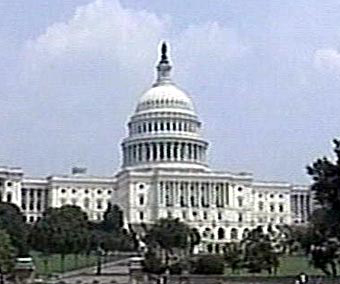Azerbaijan, Baku, Nov. 4 /Trend, E.Ostapenko/
The South Caucasus, particularly Azerbaijan, will not immediately become a priority in U.S. foreign policy as a result of the Republican Party strengthening its position in the House of Representatives. Interest can increase over time if the region becomes a part of global issues that are of vital importance to the United States, experts believe.
The U.S. Congress held midterm elections on Tuesday. Voters chose the House of Representatives, one-third of the Senate and the governors of 37 states. The Republican Party gained control of the House of Representatives, where it now has 60 seats more than the Democrats. However President Obama's Democratic Party retained control of the Senate.
"I don't think the outcome of the mid-term election will change anything in terms of U.S. policy toward the South Caucasus," Borut Grgic, a senior analyst at the Atlantic Council in Washington, told Trend.
According to him, U.S. foreign policy priorities over the next two years of Obama's term will continue to be dominated by global affairs like environment, global economy, terrorism, G20 and international affairs reform, including the U.N. and U.N. Security Council, and ties with China and India, and other emerging regional powers.
To grab the attention of the United States, Azerbaijan should find a way to insert itself as an integral partner into a major international theme, said Grgic, Founder and Director of TransCaspian Project which was established within two European think-tanks - EPC and ISS.
"I see energy and anti-terrorism as the two biggest opportunities for a strong Azerbaijani-U.S. partnership going forward," he said.
Since Obama's coming to power in the White House, the United States started to pay more attention to internal problems, not to foreign policy. The South Caucasus, representing a considerable interest to Washington, primarily due to the energy routes passing through the region, remained outside the focus of the administration.
The post of U.S. Ambassador in Baku has been vacant over the last 1.5 years. Former Ambassador Anne Derse's tenure expired last July. Since then, the appointment of a new ambassador has been delayed.
These midterm elections in the U.S. were almost exclusively focusing on domestic affairs, not foreign policy. Among main debated issues were economy and dissatisfaction with the budget deficit and Obama's unpopular healthcare program, said Michael Gunter, a U.S. expert on the South Caucasus.
"Even Iraq and Afghanistan seemed to hold little interest to voters. Therefore, I see little immediate change in U.S. foreign policy toward the South Caucasus", - said Gunter, Professor at Tennessee Technological University, USA.
However, given the fact that the Republicans have traditionally taken a strong position on national defense, Gunter believes that the new speaker of the House, John Boehner, will soon turn his attention toward the South Caucasus.
At the same time, Anthony Dworkin of the European Council on Foreign Affairs, doesn't see any likely impact on policy toward the South Caucasus, which remains a relatively specialist area of foreign policy that has not entered the pre-election political debate. So one should not expect any change toward this region, he told Trend.
According to Dworkin, the principal impact will be in areas where domestic and foreign policy intersect, so, for instance, there may be more pressure to take a tougher line with China on its currency.
Dworkin highly assesses the region's possibility to inspire the renewed interest of the U.S. leadership as some members of the Republican party retain an internationalist outlook. Moreover, they might be interested in supporting democratic reform in the region and countering Russian influence, he said.
Despite the Republicans's great interest in expanding relations with the South Caucasus, the ties between the countries are not fully dependent on who won the recent local elections in the United States, Azerbaijani political scientist Fikrat Sadikhov said.
"It's no secret that the Republicans have a closer relationship with Azerbaijan, there has been great mutual understanding," Sadikhov told Trend. "Nevertheless, I would not like to put the relationship between our two countries on the shoulders of a single party."
There are enough anti-Azerbaijani-minded politicians among Republicans, as well as among Democrats, Sadikhov said.
Under the Democrats, despite the high level of mutual understanding with Azerbaijan and close cooperation in energy projects, Section 907 was not canceled, Sadikhov said.
In October 1992, Congress passed the "Freedom Support Act," regulating state aid to former Soviet republics.
The U.S. government was forbidden to render aid to official Azerbaijani organizations by the 907th Section. The 907th Section was later suspended on what would be an annual basis in 2002 in accordance with new privileges received from Congress in 2001.
One shouldn't expect new initiatives toward the South Caucasus from the United States with the Republicans control of the House, although the body is likely to be less pro-Armenian than it was under the Democrats, U.S. expert on the South Caucasus Mark Katz supposes.
"Congress especially held a pro-Armenian position under the leadership of Nancy Pelosi of California, where Armenian-Americans are an important voting bloc," Katz, Senior Fellow at Middle East Policy Council, told Trend.
U.S. politician from Democrats, and member of the House of Representatives since 1993, Pelosi is a co-chair of a group of supporting Armenia in Congress. Sixty-year-old John Boehner replaced Pelosi after the current elections.
"Being less pro-Armenian, though, will not make Congress as a whole - or U.S. foreign policy - more pro-Azerbaijani," Katz said.
E.Tariverdiyeva contributed to this article.






